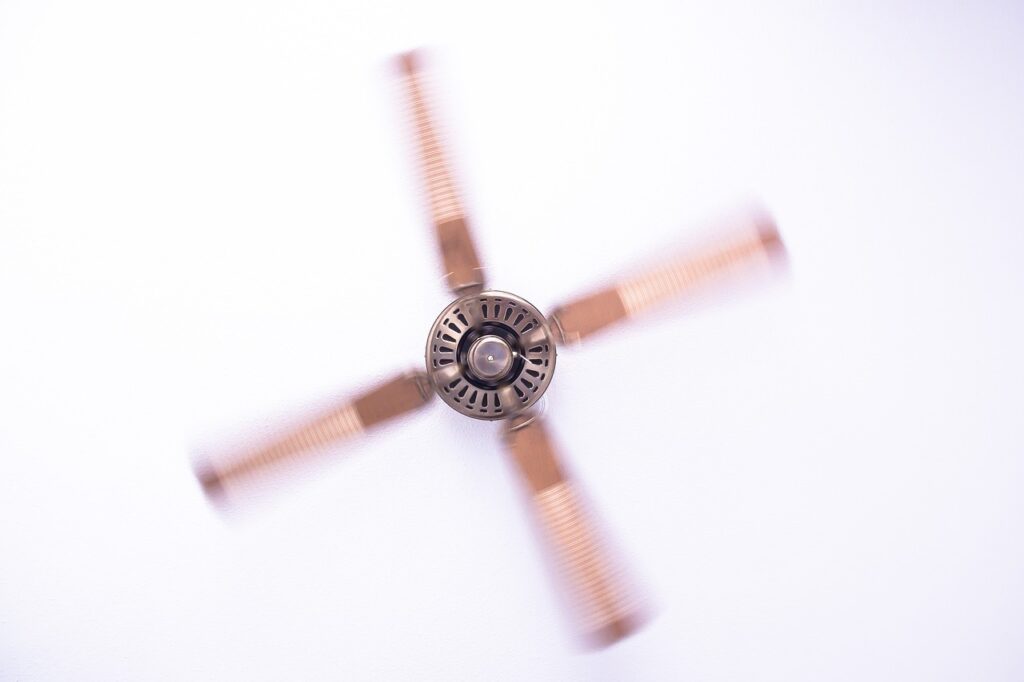When the temperatures rise or the air in your home feels stagnant, ceiling fans and air conditioning (AC) units become indispensable. However, when these essential devices malfunction, it can lead to discomfort and increased energy bills. Proper maintenance and timely repairs are crucial for ensuring these systems work efficiently. In this guide, we’ll explore top tips for fixing ceiling fans and AC units, helping you keep your home cool and comfortable year-round.
Troubleshooting and Repairing Ceiling Fans
Ceiling fans are a great way to circulate air and enhance cooling, but they can experience issues like wobbling, noise, or failing to turn on. To address these problems, start with the basics: ensure the fan is securely mounted and check that all blades are properly aligned and not loose. If your fan wobbles, this often indicates an imbalance. Use a balancing kit, usually included with the fan, to correct this. Noise issues may stem from loose screws or worn-out bearings. Tighten any loose screws and lubricate the fan’s motor to reduce noise. If the fan still fails to operate, it might be a problem with the wall switch or the fan’s pull chain. Test the switch and pull chain to ensure they are functioning correctly. If necessary, replace faulty components or consult a professional for more complex electrical issues.
Essential AC Unit Maintenance and Repairs
Air conditioning units are complex machines with several components that require regular upkeep. One of the most common issues with AC units is reduced cooling efficiency, often caused by a dirty or clogged air filter. Regularly replace or clean the filter to maintain optimal airflow and efficiency. Another frequent problem is ice formation on the evaporator coils. This can be due to a lack of airflow or refrigerant issues. Ensure that the air vents are not obstructed and that the refrigerant levels are within the recommended range. Additionally, check the condenser coils for dirt and debris, which can impede heat transfer and reduce efficiency. Cleaning these coils with a soft brush or a specialized coil cleaner can improve performance. If you notice issues such as strange noises or leaking water, it may be time to inspect the drainage system or the internal components of the AC unit. For more severe problems, such as electrical faults or compressor failure, it’s best to seek professional help to avoid further damage.
The Role of Professional Services in Resolving Issues
Are you struggling with a ceiling fan making noise or an AC unit that refuses to perform properly despite your best maintenance efforts? When it comes to persistent issues such as a ceiling fan making noise or an AC unit that continues to underperform despite your best efforts, professional services can be invaluable. At the same time, you might be able to troubleshoot and resolve minor problems on your own, persistent or complex issues often require specialized knowledge and tools. For instance, if a ceiling fan continues to make noise after you’ve tightened screws and lubricated the motor, it could indicate underlying problems like misaligned bearings or an electrical fault that requires a professional’s attention.
Similarly, for AC units, consistent cooling problems despite regular filter changes might suggest more serious issues such as refrigerant leaks or compressor malfunctions. Certified technicians bring expertise to diagnose and fix these problems accurately, ensuring that your systems are not only repaired but also optimized for long-term performance. Investing in professional services can prevent further damage, enhance the efficiency of your systems, and ultimately save you from more costly repairs down the line.
Understanding Common AC Unit Problems and Solutions
AC units can encounter a variety of issues that impact their efficiency and functionality. One common problem is the unit freezing up, which can result in inadequate cooling and potential damage to the system. This typically occurs due to low refrigerant levels or poor airflow. To address this, ensure that the air filter is clean and the refrigerant levels are properly maintained. Another issue is the thermostat malfunction, which can lead to inconsistent temperatures or the unit not turning on at all. If the thermostat is faulty, recalibrating or replacing it might be necessary. Additionally, strange odors coming from the unit can indicate mold or mildew growth, which should be cleaned thoroughly to prevent health risks and maintain optimal performance. Regular inspections can help identify these problems early and keep your AC unit running smoothly.
The Benefits of Regular Maintenance
Regular maintenance for ceiling fans and AC units is crucial for prolonging their lifespan and ensuring they operate at peak efficiency. For ceiling fans, this includes periodically cleaning the blades, checking for any signs of wear and tear, and ensuring all components are securely fastened. For AC units, it involves routine tasks such as cleaning or replacing filters, inspecting and cleaning coils, and checking for any leaks or unusual noises. Implementing a regular maintenance schedule can prevent many common issues and reduce the likelihood of unexpected breakdowns. Furthermore, well-maintained systems operate more efficiently, which can lead to lower energy bills and a more comfortable living environment. Investing time and effort into regular upkeep ultimately pays off by enhancing the performance and longevity of your cooling systems.
Maintaining and repairing ceiling fans and AC units involves a blend of proactive upkeep and timely intervention. Addressing common issues such as noise from ceiling fans or reduced efficiency in AC units requires a thorough understanding of the systems and, at times, the expertise of a professional technician. Regular maintenance is key to preventing problems and ensuring that both ceiling fans and AC units function effectively. By following these tips and seeking professional help when necessary, you can keep your home environment comfortable and your cooling systems in optimal condition.






